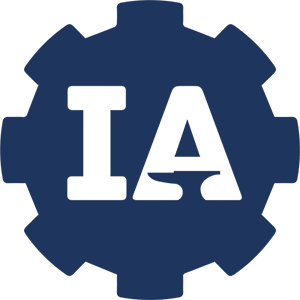
Anyone new to fitness at Industrial Athletics must complete what we call our Fundamentals Program. Through this program, we teach you the “Fundamentals” of functional movement. Why? Because longevity in a fitness program requires you to move properly. To do so requires you to understand proper movement, proper range of motion, and where you are starting in relation to that standard. You cannot know and understand your progress if you don’t know your starting point.
Learn, Practice, Train
In functional fitness, we talk about your proper movement progression in three steps: Mechanics, Consistency, and Intensity. In other words, you must first understand the proper mechanics. Next, you have to perform those proper mechanics (to the best of your ability) over and over again. Finally, you add intensity in the form of more reps, faster reps, more weight, etc.
You can think of it another way: Learn, Practice, Train. When you use these terms, you can apply this principle of proper progression to everything in life. You must first learn how to do something. Next, you practice until you get it right. Then, you apply what you’ve practiced consistently to train.
Applying it to Fitness
Where some individuals error is by assuming that once you’ve practiced, and started to train, your learning is over. You expect new progress in your life without going back to the learning stage. However, the progress of learn, practice, train must be repeated over and over again. We must never be scared to start over, even if that means restarting what we think we already know.
In the gym, we see this when athletes try to add new movements to their repertoire. Take a kipping pullup for example. A new athlete spends time working one-on-one with a coach to learn everything new through the Fundamentals Program, like squats, thrusters, and cleans. That athlete may then progress into our small group classes as they continue to “practice” and “train.” However, when they want to learn something new, like a kipping pullup, they expect to be able to pick it up without going back to the learning phase. They resist additional one-on-one learning expecting to “get it” someday.
During the last decade of training individuals, we’ve learned that those who are humble enough to return to the learning phase progress fast and see progress for longer. Why? Because they’ve accepted the benefit of life long learning. They see the need to repeat learn, practice, train. They never assume they already know what to do or they will magically pick it up.



